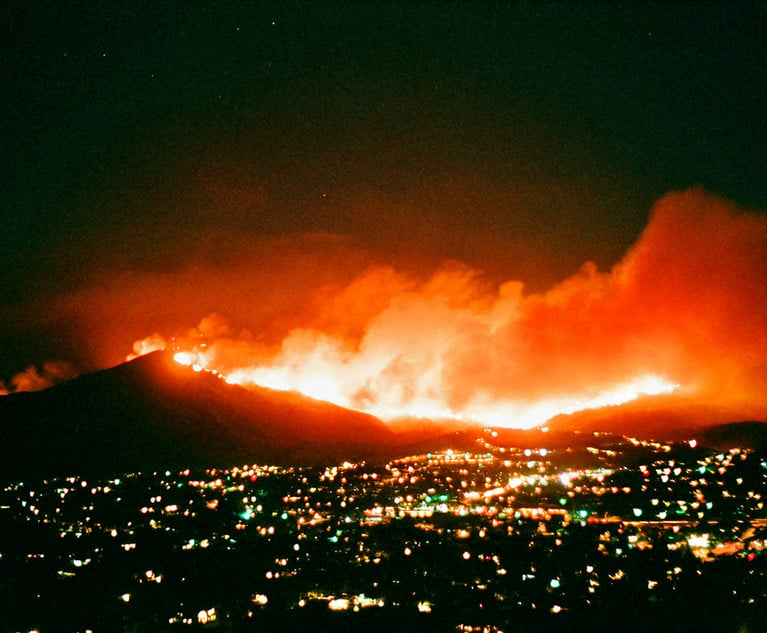Nine years.
|That's how long it took for Airbnb to grow from azero-dollar company to a $30 billion company.
|Few other businesses in American history can boast such animpressive initial track record.
|Related: Insuring the shared economy in a connectedworld
|Various forms of “disruptive technology” — like Airbnb — arechanging the way we travel, drive, eat and live. Americans are nolonger satisfied with the limited options provided by hotels,motels and traditional bed and breakfasts.
|Airbnb recognized this gap in the market and capitalized on ithandsomely. While various other companies, including Expedia andPriceline, are racing to catch up, Airbnb remains the leading “homesharing” company. With that success, however, have come certainchallenges that the government, judicial system and insurancecompanies are still struggling to identify and understand.
|One such challenge is how innovative concepts like Airbnb impactexisting homeowners' insurance.
|Founded in 2008 and based in San Francisco, Airbnb nowhas over three million listings worldwide and, according to itswebsite, is a self-defined “trusted community marketplace forpeople to list, discover and book unique accommodations around theworld.”
|Users fall into two predominant categories: “hosts” and“guests.” Hosts rent their property — often on a short-term basis —to “guests” for a fee. The guest selects an accommodation thatmeets his unique wants and needs. The host reviews the profile ofthe prospective guest and can either accept or reject the proposedbooking.
|At the end of the stay, hosts and guests have the option toreview each other. These reviews post on their respective profiles,providing an incentive for the parties to respect each other andthe property. Yet, despite this review and vetting process,accidents and even intentional damage can still occur.
|From an insurance coverage standpoint, key questions include:Are these damages covered by the host's homeowners' policy? Shouldthe host seek additional property or liability coverage, viaendorsements, supplemental policies, or otherwise?
|Host guarantee program
Airbnb offers a host guarantee program, advertised as providing“protection” for property damages, up to $1,000,000, around theworld. Payments are subject to certain conditions, limitations andexclusions. Given such sizeable numbers, the novice host mayquestion whether there is any need to confirm, or secure, coverageunder their homeowners' policy as well.
|Related: Airbnb: A risky sitution for buildingowners
|While the host guarantee does provide hosts with some peace ofmind, there is little to no case law addressing the coverageafforded by this program, the terms of which are somewhat complexand arguably open to challenge.
||According to the host guarantee, after a loss occurs, the hostmust contact the guest and attempt to negotiate a resolution beforesubmitting an official claim through Airbnb. If the issue cannot beresolved with the guest directly, the host may then submit hisrequest to the host guarantee either 14 days from when the guestchecks out, or before the next guest checks in, whichever isearlier. Airbnb solicits information from both host and guest,evaluates the claim, and advises the host if he will bereimbursed.
|Related: Protecting clients who participate in the sharingeconomy
|Host guarantee is not insurance
Airbnb repeatedly states that the host guarantee is notinsurance and should not be considered a replacement forhomeowners' or renters' insurance. Airbnb encourages hosts toreview their own homeowners' policies, determine what they do anddo not cover, and purchase supplemental insurance that will coverlosses that do not fall within the terms of the host guarantee. Itreserves the right to modify or terminate the host guarantee termsfor various reasons, including if a governmental or regulatoryauthority should construe the host guarantee as insurance.
|The host guarantee terms specify that, for a loss to be coveredunder the host guarantee, it must also be covered under Airbnb'sown insurance policy, and that Airbnb may make payment contingentupon a determination that the claim is ultimately covered under itsown policy.
|The host guarantee states that the hosts are not insureds orthird-party beneficiaries under Airbnb's insurance policy, andthat, if additional protection is sought, “AIRBNB STRONGLYENCOURAGES YOU TO PURCHASE SEPARATE INSURANCE THAT WILL COVER YOUAND YOUR PROPERTY FOR LOSSES CAUSED BY GUESTS OR GUESTS' INVITEESIN THE EVENT AIRBNB OR ITS INSURER DECLINES COVERAGE FOR CLAIMSUNDER THEIR AIRBNB HOST GUARANTEE OR YOUR LOSS IS NOT OTHERWISECOVERED BY THE AIRBNB HOST GUARANTEE.” The host must also have usedreasonable efforts to comply with Airbnb's safety guidelines,outlined on the website.
|Consider for a moment the following scenario. A guest stays at ahost's home. The guest accidentally starts a fire and the houseburns to the ground. The host first turns to the guest to reimbursehim for the damages — as required by the host guarantee. The guestresponds: “The fire started because of the faulty wiring in yourhome and I did nothing wrong and I'm not paying you anything.”
|The host then turns to Airbnb for coverage. Airbnb considers theclaim. Perhaps the claim is covered by Airbnb's policy and the hostis reimbursed through the host guarantee program. What if the claimis not covered? Or what if Airbnb determines that the fire occurredbecause the host had failed to comply with Airbnb's safetyguidelines and, as a result, denies the claim? The host will thenlikely turn to his own homeowners' insurance company. Let's assumethat insurer denies the claim based upon an exclusion for businessuse or an exclusion for short-term rentals. Then what?
|Business-use exclusion
The possibility that a host's existing homeowners' policyincludes a business-use exclusion is a real one. For example, theOregon insurance commissioner has explained that “homeownerspolicies generally do not provide coverage for business use.” RonLieber, “A Liability Risk for Airbnb Hosts,” N.Y.Times, Dec. 5, 2014, (Quoting Oregon insurance commissioner);Allstate, “Is Home Sharing Covered by HomeownersInsurance?,” May 2014, (Most homeowners policies do notconsider property damage to a rental property to be a “ coveredperil.”).
|Consider, too, this coverage issue: If the host charges theguest money to use the home, is he a social guest at all — or,rather, a party to a commercial transaction? The Insurance InformationInstitute has also indicated that ongoing short-term rental ofan insured's property may be considered a business that requiresthe insured to purchase business insurance.
||Consider this scenario: A hurricane floods the basement of anAirbnb property. The damage had nothing to do with the guest orwith Airbnb operations. When adjusting the claim, however, thehost's homeowners' insurer discovers — for the first time — thatthe property is being used for short-term rentals.
|Related: There's a coverage gap with thatapp
|The insurer could conceivably cancel the policy, concluding thatthe commercial enterprise constituted an increased risk of which itwas not aware and which it had not previously evaluated whensetting premiums. See Ron Lieber, “ALiability Risk for Airbnb Hosts,” N.Y. Times, Dec. 5,2014, (Quoting Allstate spokeswoman, Laura Strykowski: “An insuredhas the obligation to be forthcoming about all facts relating tohis/her insured property. Not doing so could impact coverage andjeopardize the continuation of insurance”).
|Liability coverage
Another key insurance-related issue is liability coverage. Thehotel industry — one of Airbnb's most prominent and vocal critics —must adhere to strict safety standards regarding fire preventionand food and health safety, and must comply with the Americans withDisabilities Act and other state and federal regulations,regulations with which (for now, at least) Airbnb is not requiredto comply. One could argue that there are certain increased risksthat guests voluntarily assume when staying at a private home, asopposed to a regulated hotel, perhaps in exchange for a lowerrental amount or increased options and flexibility.
|HPI Program – secondary liability coverage
In 2014, Airbnb began offering $1,000,000 in secondary liabilitycoverage to its hosts. In other words, if the host's homeowners'insurer denies the claim, Airbnb's policy is triggered. A yearlater, Airbnb made its “Host Protection Insurance Program” (HPIProgram) primary. Hosts in approximately 15 countries, includingthe United States, are now insured for liability coverage of up to$1,000,000 in the event of a third-party claim for bodily injury orthird-party property damage, regardless of whether the host'shomeowners' policy provides coverage. Per the terms of the HPIProgram, this coverage is primary.
|Airbnb's decision to provide this coverage may have, in part,been because a growing number of local governments have shown anincreased awareness of legal issues from the home-sharing trendwhen drafting new ordinances and regulations. San Francisco, forexample, has a new ordinance which requires hosts to maintain atleast $500,000 in liability coverage, see Airbnb v. City and County of SanFrancisco, 217 F. Supp. 3d 1066, 1070 (N.D. Cal.2016), (San Francisco Ordinance 218-14 requires proof of liabilityinsurance).
|The source of such liability coverage, however, will not likelybe a conventional homeowners' policy maintained by the host. Forexample, depending upon the language of the individual policy, theinsurer may find that the claim falls under a business exclusion,or that the definition of “insured location” has not been met, if“insured location” is defined as that part of the premises wherethe insured — not a paying guest — resides. Galen Hayes,“The Scary Insurance Reality For AirbnbHosts,” Property Casualty 360 Jan. 5, 2016.
|Little U.S. case law
To date, there is little U.S. case law addressing the issue ofinsurance coverage for Airbnb properties. This may be, in part, asa result of the fact that Airbnb's “terms of service” requiredisputes with Airbnb to be resolved through arbitration, asin Selden v. Airbnb, 2016 U.S. Dist. Lexis150863 (D.D.C. 2016).
|To return, then, to the question posed by this article's title —just how up in the air is insurance coverage? It is unlikely thatwe will have a clear answer in the immediate future, and thevariety of insurance coverage issues that may arise could besubstantial. Hosts would, therefore, be wise to check on theinsurance provided by their personal homeowners' policies, beforetheir guests check out.
|Airbnb Host Allison Krupp is an attorney in the professionalliability department at Marshall Dennehey Warner Coleman &Goggin. Resident in the firm's Harrisburg office, she focuses herpractice on insurance coverage and bad faith litigation matters.She may be reached at [email protected].
Want to continue reading?
Become a Free PropertyCasualty360 Digital Reader
Your access to unlimited PropertyCasualty360 content isn’t changing.
Once you are an ALM digital member, you’ll receive:
- All PropertyCasualty360.com news coverage, best practices, and in-depth analysis.
- Educational webcasts, resources from industry leaders, and informative newsletters.
- Other award-winning websites including BenefitsPRO.com and ThinkAdvisor.com.
Already have an account? Sign In
© 2024 ALM Global, LLC, All Rights Reserved. Request academic re-use from www.copyright.com. All other uses, submit a request to [email protected]. For more information visit Asset & Logo Licensing.








